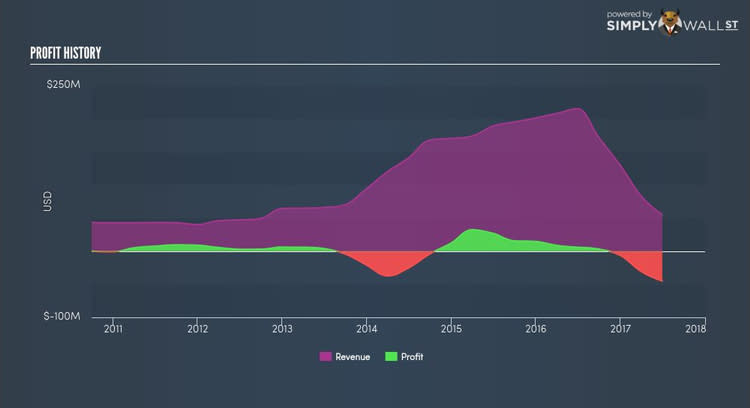Why You Need To Look At This Factor Before Buying Kandi Technologies Group Inc (KNDI)

If you are looking to invest in Kandi Technologies Group Inc’s (NASDAQ:KNDI), or currently own the stock, then you need to understand its beta in order to understand how it can affect the risk of your portfolio. There are two types of risks that affect the market value of a listed company such as KNDI. The first risk to think about is company-specific, which can be diversified away by investing in other companies in order to lower your exposure to one particular stock. The other type of risk, which cannot be diversified away, is market risk. Every stock in the market is exposed to this risk, which arises from macroeconomic factors such as economic growth and geo-political tussles just to name a few.
Different characteristics of a stock expose it to various levels of market risk. A popular measure of market risk for a stock is its beta, and the market as a whole represents a beta value of one. A stock with a beta greater than one is considered more sensitive to market-wide shocks compared to a stock that trades below the value of one.
Check out our latest analysis for Kandi Technologies Group
An interpretation of KNDI's beta
Kandi Technologies Group’s five-year beta of 2.62 means that the company’s value will swing up by more than the market during prosperous times, but also drop down by more in times of downturns. This level of volatility indicates bigger risk for investors who passively invest in the stock market index.According to this value of beta,KNDI will help diversify your portfolio, if it currently comprises of low-beta stocks. This will be beneficial for portfolio returns, in particular, when current market sentiment is positive.
Does KNDI's size and industry impact the expected beta?
A market capitalisation of USD $184.88M puts KNDI in the category of small-cap stocks, which tends to possess higher beta than larger companies. Furthermore, the company operates in the automobiles and components industry, which has been found to have high sensitivity to market-wide shocks. As a result, we should expect higher beta for small-cap stocks in a cyclical industry compared to larger stocks in a defensive industry. This is consistent with KNDI’s individual beta value we discussed above. Fundamental factors can also drive the cyclicality of the stock, which we will take a look at next.
Is KNDI's cost structure indicative of a high beta?
An asset-heavy company tends to have a higher beta because the risk associated with running fixed assets during a downturn is highly expensive.I examine KNDI’s ratio of fixed assets to total assets to see whether the company is highly exposed to the risk of this type of constraint.Considering fixed assets account for less than a third of the company's overall assets, KNDI seems to have a smaller dependency on fixed costs to generate revenue.Thus, we can expect KNDI to be more stable in the face of market movements, relative to its peers of similar size but with a higher portion of fixed assets on their books. However, this is the opposite to what KNDI’s actual beta value suggests, which is higher stock volatility relative to the market.
What this means for you:
Are you a shareholder? You could benefit from higher returns during times of economic growth by holding onto KNDI. Its low fixed cost also means that, in terms of operating leverage, it is relatively flexible during times of economic downturns. Consider the stock in terms of your other portfolio holdings, and whether it is worth investing more into KNDI.
Are you a potential investor? I recommend that you look into KNDI's fundamental factors such as its current valuation and financial health. Take into account your portfolio sensitivity to the market before you invest in the stock, as well as where we are in the current economic cycle. KNDI may be a great investment during times of economic growth.
Beta is one aspect of your portfolio construction to consider when holding or entering into a stock. But it is certainly not the only factor. Take a look at our most recent infographic report on Kandi Technologies Group for a more in-depth analysis of the stock to help you make a well-informed investment decision. But if you are not interested in Kandi Technologies Group anymore, you can use our free platform to see my list of over 50 other stocks with a high growth potential.
To help readers see pass the short term volatility of the financial market, we aim to bring you a long-term focused research analysis purely driven by fundamental data. Note that our analysis does not factor in the latest price sensitive company announcements.
The author is an independent contributor and at the time of publication had no position in the stocks mentioned.

 Yahoo Finance
Yahoo Finance 
